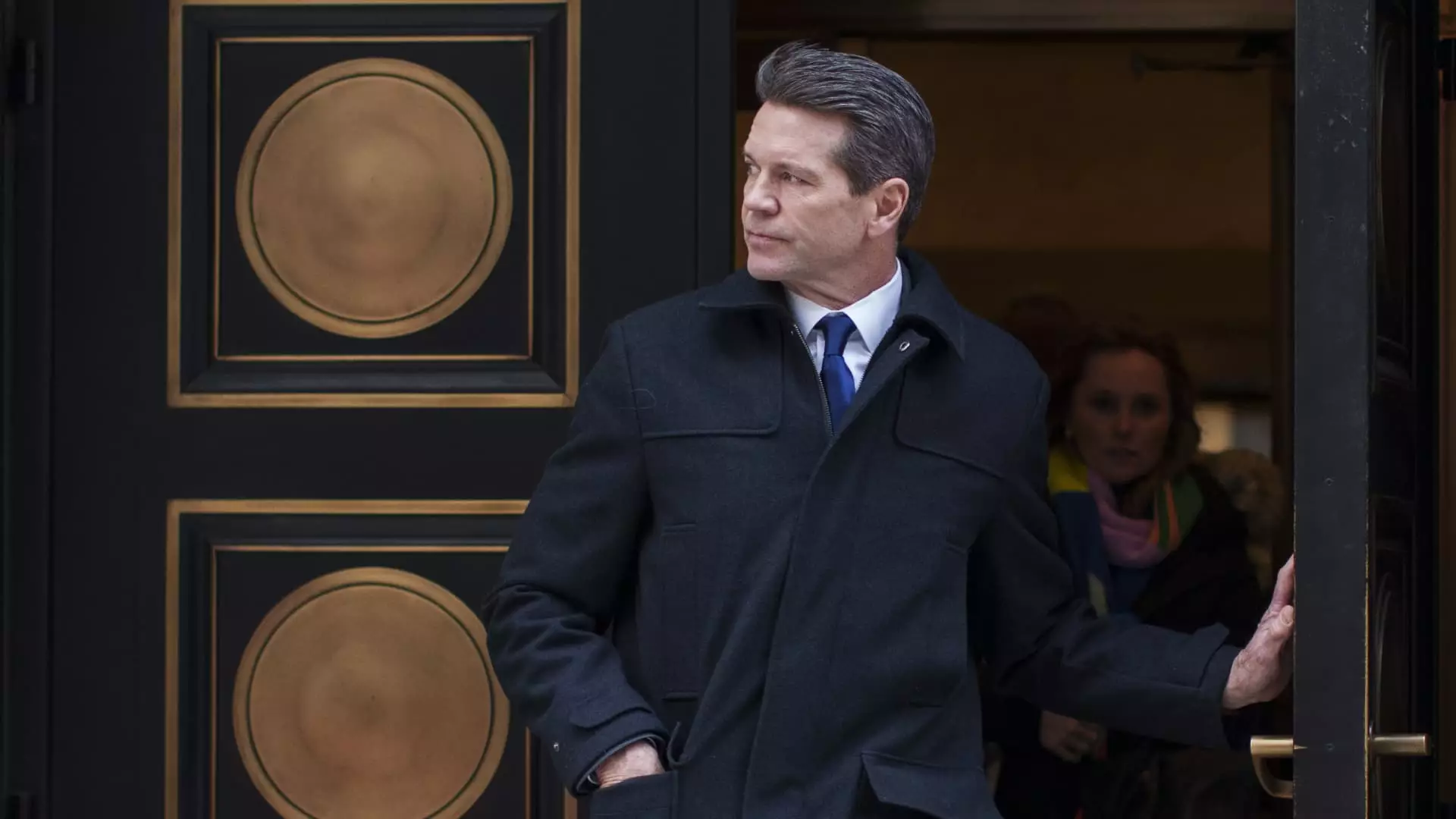The abrupt departure of James Dennehy from the FBI’s New York Field Office marks a chilling chapter in America’s law enforcement. Dennehy, a figure of respect within the bureau, found himself at the mercy of the political climate following the Trump administration’s chaotic handling of power. The troubling undercurrents within the FBI illustrate a growing trend of political meddling in law enforcement—a trend that not only threatens the integrity of investigations but also the very foundation of justice itself.
Dennehy’s forced retirement came on the heels of a demanding request from the Trump Justice Department, which sought the names of agents involved in the January 6th Capitol riot investigations. This demand reeked of intimidation and raised serious questions about the federal government’s commitment to neutrality. When dedicated employees like Dennehy are coerced into retirement without ample justification, it’s not merely a personnel change; it’s an alarming signal that loyalty may soon eclipse justice within the FBI.
The message sent to the agents upon Dennehy’s exit is frighteningly clear: if you stand by the law, you may find yourself on the chopping block. Dennehy’s email to his staff resonates with unease, as he acknowledged the targeting of “good people” who are simply fulfilling their duties as enforcers of the law. His choice to “dig in” amidst the torrent of political pressures highlights a moral fortitude that is increasingly rare in a bureaucratic landscape dominated by fear and compliance.
The implications of Dennehy’s removal and the ascension of figures like Kash Patel and Dan Bongino to leadership positions within the FBI raise further alarms. Both have shown overt partisan leanings that contradict the FBI’s supposed apolitical mission. The shift in leadership is reminiscent of times in history when law enforcement agencies become weapons of political actors instead of guardians of the Constitution.
As more agents are demoted or pushed out for simply doing their jobs, the message being crafted within the FBI is one of retribution rather than service. The unnerving choice presented to Dennehy—resign or be fired—echoes the dangerous precedence set by the Trump administration when they sought to dismantle the norms that protect the sanctity of independent investigative processes. This decline in morale and independence within law enforcement agencies not only compromises their effectiveness but also erodes public trust.
The awe-inspiring character of the FBI has been tarnished as it shifts from an agency of law enforcement to one of political policing. Every time agents are unduly influenced by political pressures, the core values of justice, fairness, and due process hang in the balance. The repercussions can be both immediate and far-reaching, causing ripples throughout the entire system of justice.
The dismissal of senior officials known for their integrity is a stark warning to rank-and-file agents who may consider standing up against unethical directives. When those in leadership positions are made to feel that their adherence to the rule of law is met with punishments rather than rewarded, it sends a clear signal to the industry’s younger agents: compliance is better than integrity.
As the FBI grapples with this internal crisis, Americans are left grappling with the unsettling realization that their law enforcement may not operate independently of political impulses. The path ahead for the agency is fraught with challenges, as maintaining trust with the public becomes an uphill battle. The trajectory this leadership change sets is alarming; it threatens not just the FBI but the principles of accountability and transparency that should underpin all democratic institutions.
The chaos sparked by the Trump administration continues to reverberate, creating an atmosphere where loyalty to the party may soon eclipse loyalty to the public. If the FBI is to restore its image and regain its credibility, it must urgently recommit to being a nonpartisan authority that serves all Americans without bias or prejudice. Only then can the agency hope to navigate the stormy waters of modern law enforcement politics without losing its way.


Leave a Reply